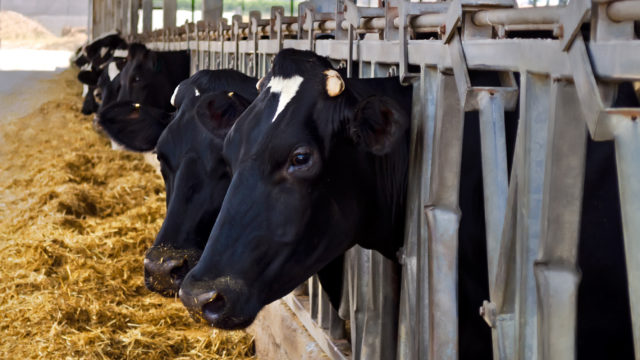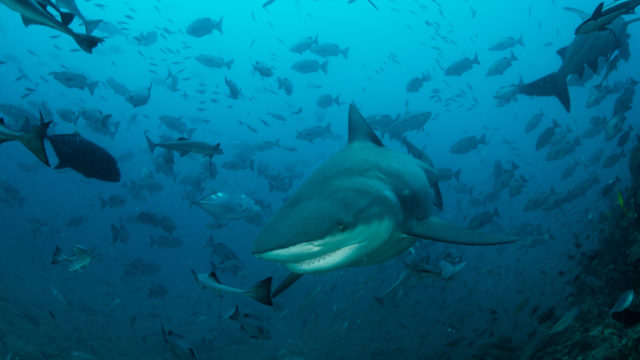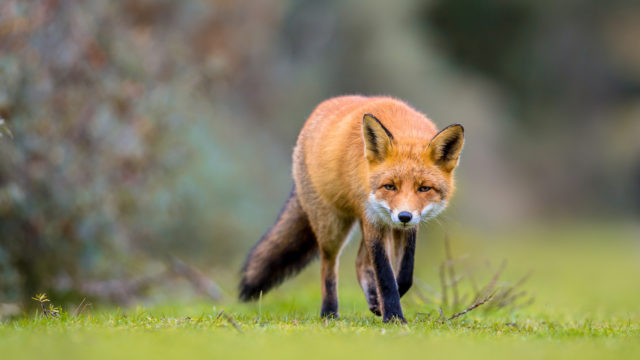Sentient Legislation: ALDF’s Canadian Province Rankings Motivate Change
In June 2015, ALDF released its eighth annual ranking of Canada’s provinces and territories based on the strength of their animal protection legislation. With Manitoba holding on to the top spot in the rankings, Nova Scotia showed the biggest yearly improvement, as stiffer maximum penalties for abusers were enacted and protections against abandonment and unsanitary captivity were advanced. At the same time, for the fourth year in a row, Quebec found itself listed at the bottom of the rankings alongside three other jurisdictions.
Animal advocates in Montreal were hopeful, however, as the broadcast of ALDF’s yearly rankings had drawn attention to Quebec’s status, with articles in multiple Canadian newspapers, Huffington Post Canada and elsewhere underscoring the issue.
Around this time, Bill 54, “An Act to Improve the Legal Situation of Animals,” was presented to the National Assembly by Quebec’s Minister of Agriculture. As described by Sophie Gaillard, an attorney and campaigns manager for the Montreal SPCA’s animal advocacy department, “The rankings played a key role in this bill coming forward. Basically all the animal advocacy groups in Quebec used the rankings as a tool to push at the legislative level, and the Minister of Agriculture saw Quebec being shamed as among the worst in Canada. The rankings were very significant.”
The new bill would legislate protection for a broader range of species, establish acknowledgement of psychological welfare for animals, and enact increased penalties, including jail time for repeat offenders. Bill 54 also includes a symbolic change to the legal status of animals under the Civil Code of Quebec, recognizing them as sentient beings distinct from inanimate objects. While certain animals, namely those in zoos or breeding facilities, would remain unaffected by this legislation, local advocates were optimistic—changes to provincial and territorial law carry tremendous weight in an environment where federal animal-protection law has been essentially unchanged since 1892.
On October 9, the National Assembly of Quebec moved unanimously to pass the bill in principle, with zero partisan discord. Quebec’s Minister of Agriculture pointed out that, while animals will still be legally considered property, the law will also view them as sentient beings with biological needs.
According to Gaillard, “He wanted Quebec to be known as a place that was harsh on animal abusers, and he held to his word. The bill has a component with new legislation that improves animal welfare, and an amendment to the civil code that would recognize animals as sentient beings. This has been done in some European countries, notably France, but we’d be the first in North America where that would be the case. This provision says that animals are different from property, and though all legal provisions that apply to property continue to apply to animals, it is very important symbolically.”
Still, Gaillard was emphatic regarding the further work to be done. “It will still keep Quebec at about seventh in the rankings, sort of in the middle. The legislation continues to exclude many species if they’re kept in captivity—so all wildlife in captivity, for instance, would still be essentially unprotected. Also, jail time becomes a possibility with this legislation, but only for repeat offenders. It is a huge improvement, but there is still more progress to make before we become the top province.”
Over the weekend, the Animal Legal Defense Fund and the Center for Animal Law Studies hosted the 23rd annual Animal Law Conference at Lewis and Clark Law School in Portland, Oregon, and the focus was on international animal law. The success of ALDF’s Canadian rankings in helping to advance provincial laws in Canada demonstrates that ALDF and other US-based organizations can play a role in helping other countries advance the laws the protect animals. At the same time the US has a great deal to learn from countries that offer greater legal protection to animals than the US, particularly in the areas of farmed animals, animals used in experimentation, and great apes.
Focus Area
How We Work
Related
-
New Mega Dairy is an Environmental Catastrophe for Oregon Residents
The Animal Legal Defense Fund, in conjunction with other local and national groups, challenged the state of Oregon’s approval of a water-pollution permit for Lost Valley Farm, a mega dairy.June 27, 2017 News -
World Oceans Day Highlights Lack of Protection for Sea Life
World Oceans Day, June 8th, is a global day to honor, help protect, and conserve the world’s oceans.June 8, 2017 News -
U.S. Withdraw from Paris Accord is an Assault on Animals and the Environment
The Animal Legal Defense Fund is dismayed by the decision to withdraw from the Paris Agreement, the global plan to respond to and mitigate climate change.June 1, 2017 Press Release



